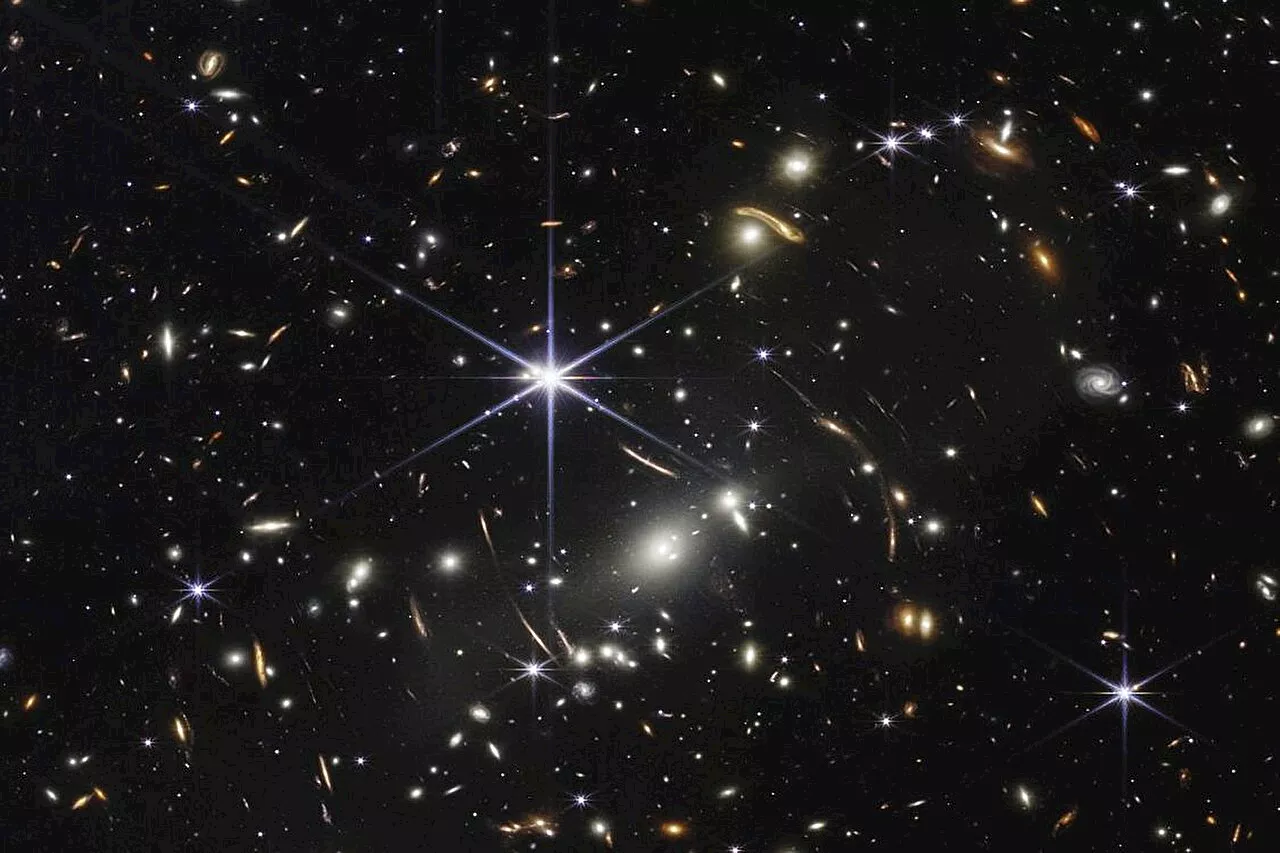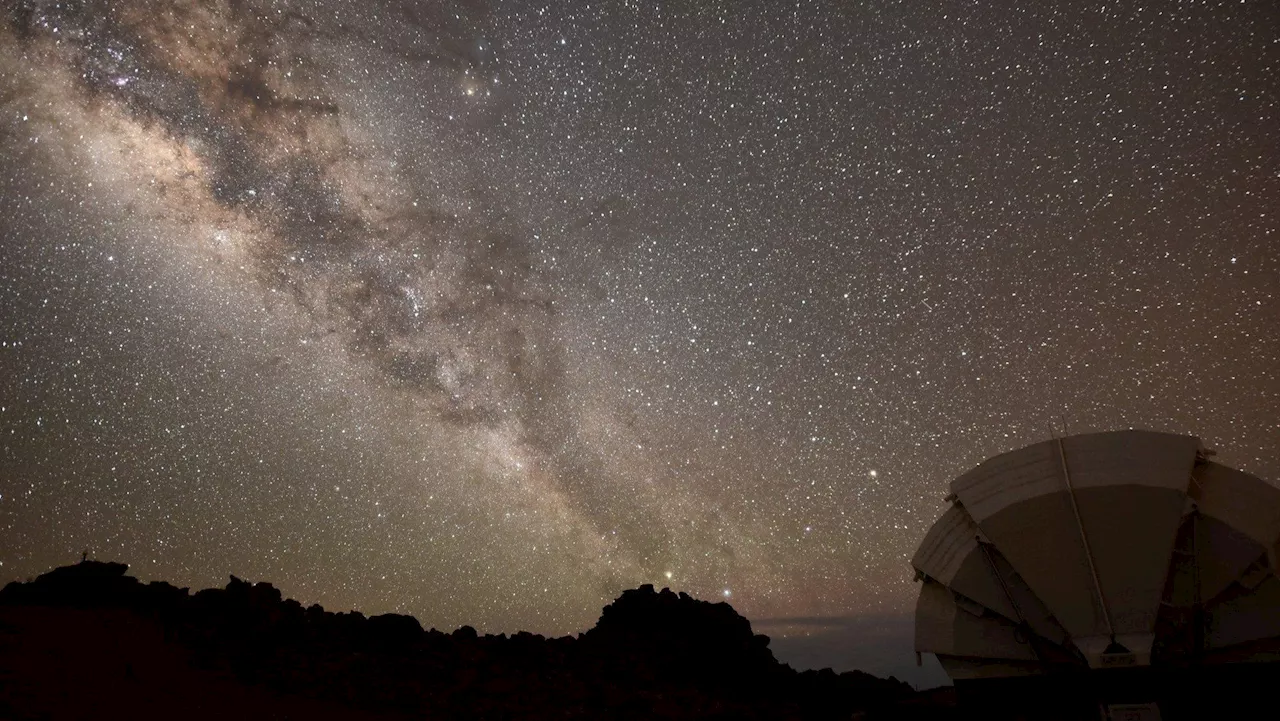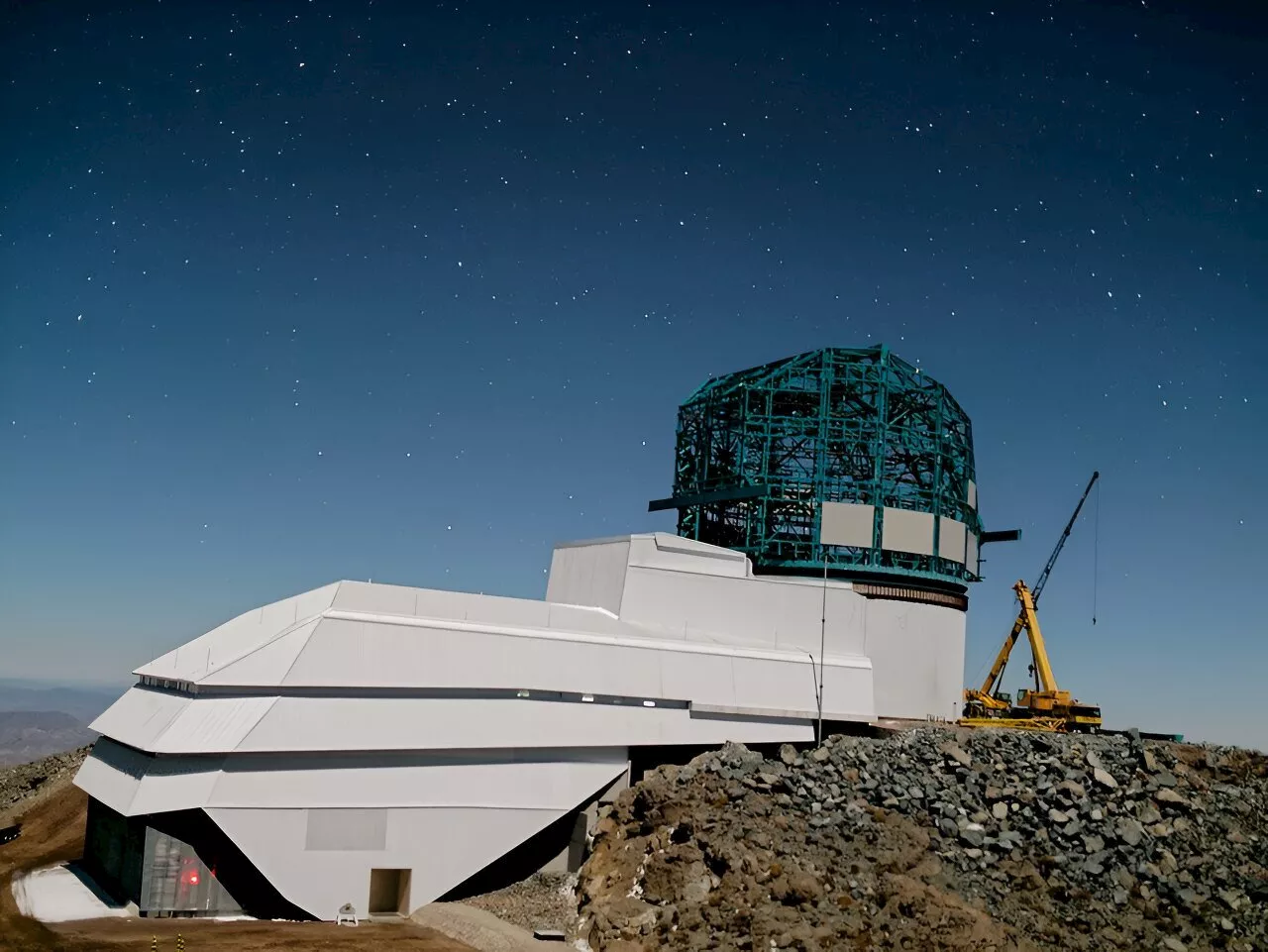Astronomers have discovered two known interstellar objects (ISO), 'Oumuamua and 21/Borisov. But there could be thousands of these objects passing through the solar system at any time.
retrieved 1 November 2023 from https://phys.org/news/2023-11-vera-rubin-observatory-interstellar-year.html
This document is subject to copyright. Apart from any fair dealing for the purpose of private study or research, no part may be reproduced without the written permission. The content is provided for information purposes only.May 30, 2023Use this form if you have come across a typo, inaccuracy or would like to send an edit request for the content on this page. For general inquiries, please use ourThank you for taking time to provide your feedback to the editors.
Your feedback is important to us. However, we do not guarantee individual replies due to the high volume of messages.to let the recipient know who sent the email. Neither your address nor the recipient's address will be used for any other purpose. The information you enter will appear in your e-mail message and is not retained by Phys.org in any form.Get weekly and/or daily updates delivered to your inbox.
Singapore Latest News, Singapore Headlines
Similar News:You can also read news stories similar to this one that we have collected from other news sources.
 Vera Rubin Observatory Could Find Up to 70 Interstellar Objects a YearSpace and astronomy news
Vera Rubin Observatory Could Find Up to 70 Interstellar Objects a YearSpace and astronomy news
Read more »
 Are indigenous land statements a green light for terrorism?Michael Rubin (mrubin1971) is a contributor to the Washington Examiner's Beltway Confidential blog.
Are indigenous land statements a green light for terrorism?Michael Rubin (mrubin1971) is a contributor to the Washington Examiner's Beltway Confidential blog.
Read more »
 Astronomers now know how far the Earth is from 200 galaxiesOn July 11, 2022, the very first image taken by the James Webb Space Telescope (JWST) was released to the general public. It's called Webb's First Deep Field, centered on a cluster of galaxies named SMACS 0723 and containing no less than 7,000 galaxies.
Astronomers now know how far the Earth is from 200 galaxiesOn July 11, 2022, the very first image taken by the James Webb Space Telescope (JWST) was released to the general public. It's called Webb's First Deep Field, centered on a cluster of galaxies named SMACS 0723 and containing no less than 7,000 galaxies.
Read more »
 What astronomers learned from a near-Earth asteroid they never saw comingBriley Lewis (she/her) is a freelance science writer and Ph.D. Candidate/NSF Fellow at the University of California, Los Angeles studying Astronomy & Astrophysics. Follow her on Twitter briles_34 or visit her website www.briley-lewis.com.
What astronomers learned from a near-Earth asteroid they never saw comingBriley Lewis (she/her) is a freelance science writer and Ph.D. Candidate/NSF Fellow at the University of California, Los Angeles studying Astronomy & Astrophysics. Follow her on Twitter briles_34 or visit her website www.briley-lewis.com.
Read more »
